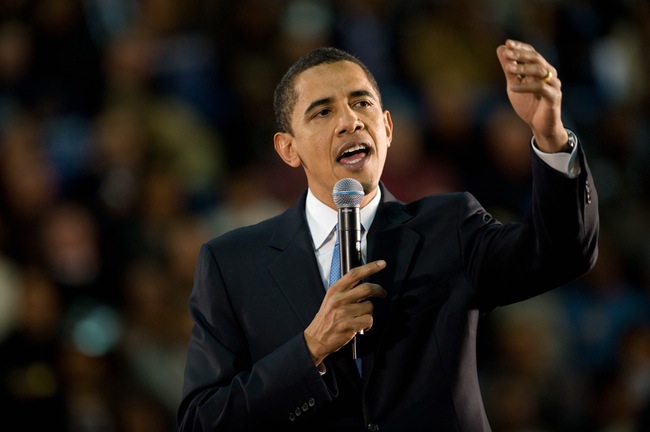
The pen may be mightier than the sword, but neither holds a candle to the power of the spoken word. From commanding armies to captivating audiences, what you say, and how you say it, can become one of the most powerful weapons at your disposal.
To speak effectively, you need to master the three E’s: elocution, eloquence, and economy.
1 – Elocution is the skill of speaking clearly and expressively, pronouncing and articulating your words with care and precision. No umms or hmms, no awkward pauses or mindless filler, no provincial pronunciations, nor linguistic faux pas.
Even if English is your first language, you’ll benefit from some polishing up in this department.
One of the quickest and easiest ways to improve your elocution, believe it or not, is to use YouTube. YouTube has a ton of videos on the subject, and can teach you to speak like the gentry in no time at all. The key is to listen carefully, and practice extensively.
To really nail this, you’ll find it beneficial to record yourself speaking, and to then play it back and listen. What you sound like to others is somewhat different from what you sound like to yourself, due to the oddities of human hearing and bone conduction. It’s useful to hear the difference.
While having an accent can sometimes be beneficial, many accents can actually hold you back, because they interfere with clear diction. If you have an accent, especially if English is your second language, you’re going to have to put extra effort into the elocution department.
2 – Eloquence is the mastery of fluent and persuasive speech. The ability to speak and move minds, change hearts, and to be remembered. This, unfortunately, is not something that is easy to teach, nor easy to learn.
The truly eloquent usually have some measure of natural ability, and tend to find ways to enhance that through practice. That said, I’ve personally found the best way to become more eloquent is to read extensively.
By filling my mind with a large sampling of writing, I’ve naturally picked up artful methods of communicating richly and visually.
Though I can’t teach you to be eloquent, I can give you one useful trick to help you on your way: pause. Before you speak, before you respond to a question, pause. Give yourself a moment to compose your thoughts.
Don’t take too long, but if you put on a thoughtful expression, and take a moment before you respond, you’ll find that nobody minds…and what comes out of your mouth will sound MUCH better than it otherwise would have.
3 – Economy of speech is saying what needs to be said, and no more. As William of Occam said, “It is vain to do with more what can be done with less,” and this applies to speech as well as to many other areas of life.
True eloquence is not speaking in excess, but instead speaking clearly and succinctly. Blathering on for the sake of blathering is not recommended.
You may love the sound of your own voice, but the truly powerful and confident feel no need to fill silences, nor hear their own voices. They speak when there’s a need, and stay silent when silence will suffice (silence can be a very powerful tool).
Have you ever heard an elevator pitch? An elevator pitch is a short, concise delivery of a business idea (short enough to be delivered on an elevator ride). Strive to keep your thoughts as pithy and concise as a good elevator pitch.
I’ve found that one of the best ways to learn to be economical in my speech is to talk to myself, either out loud or in my head. I do this consciously, in an effort to refine my ideas, to hone my presentation, and to find both clear and concise ways to present whatever it is I have to say.
The three E’s will get you quite far in your pursuit of precise and persuasive speech. That said, the three E’s are more about what to do, instead of what not to do. There are numerous not-to-do’s, but they are highly situational. Here are a few of the most critical:
- By default, limit your vulgarity (swearing, crude jokes, etc.) I personally love to swear, but I avoid it when I first meet someone, and hold off until I’ve had a chance to gauge their manner of speaking. If they use lots of vulgarity, I’ll usually dial it up to match (though not always…sometimes it’s better to hold the high ground).
- The wealthy and powerful like to talk about money. How much they make, what they’ve recently bought, etc. Avoid this line of discussion. Best case, your companions blow you off as inferior if you can’t compete financially. Worst case, you feel compelled to compete regardless, and end up blowing money you don’t have on things you don’t need. Neither ends well for you.
- If you’re not good in a debate, don’t start one. The average Joe may decline to engage in a debate if you embark into certain territory (religion, politics, etc.), but the powerful have no such qualms. They love a good debate.
Last but not least, remember The Seven P’s: Proper Previous Planning Prevents Piss Poor Performance. Regardless of how or where you plan to put these tips to use, do your research beforehand!
Know your audience: the topics they like to discuss, the basics of the businesses they are in, current events, world politics, etc. You need to be well read, well informed, and comfortable with your opinions.
If you’re trying to join the Wall Street crowd, know how they speak, and what they like to speak about. The same goes for politics, science, or any other field you wish to break into.
I’ve found the easiest way to do this is to pick a coffee shop, restaurant, or a bar where your target crowd hangs out, and just sit and listen. Environments with alcohol are especially informative.
This provides not only a great chance to hear how they talk, and what they talk about, but gives you an excellent chance to observe their physical mannerisms as well, which is what we’re going to work on next.
